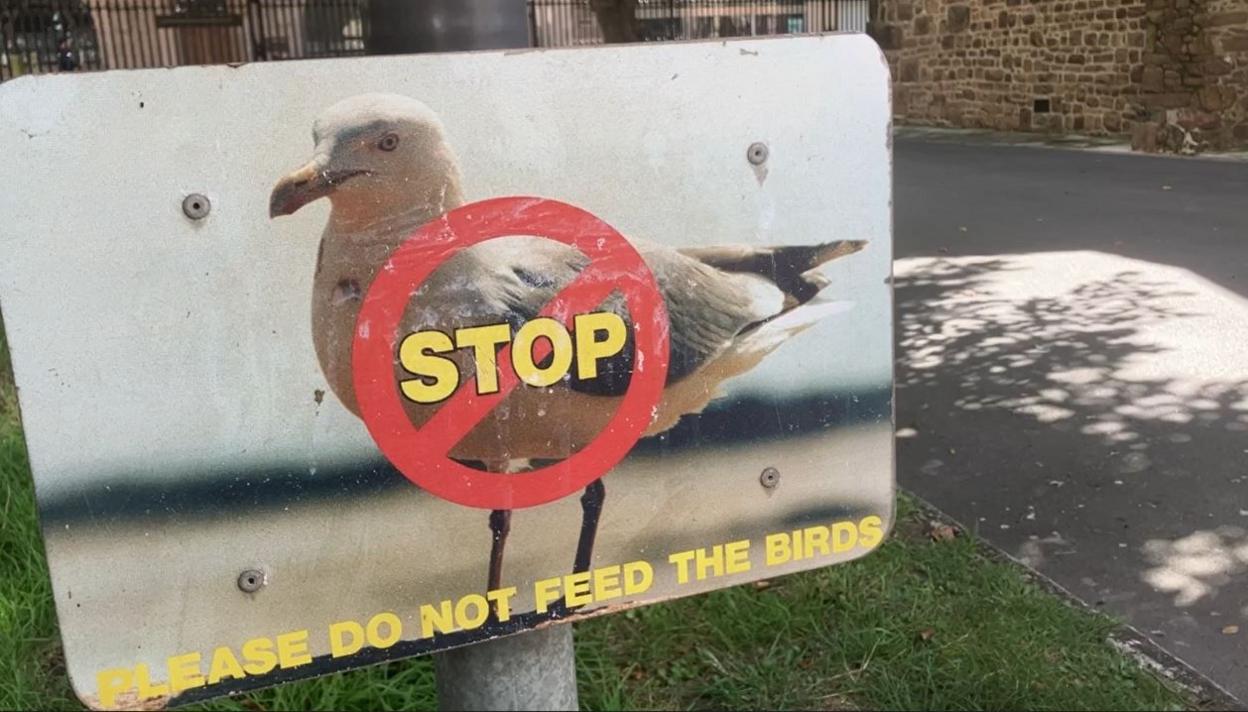Seagull summit: Does Scotland have a bird problem?
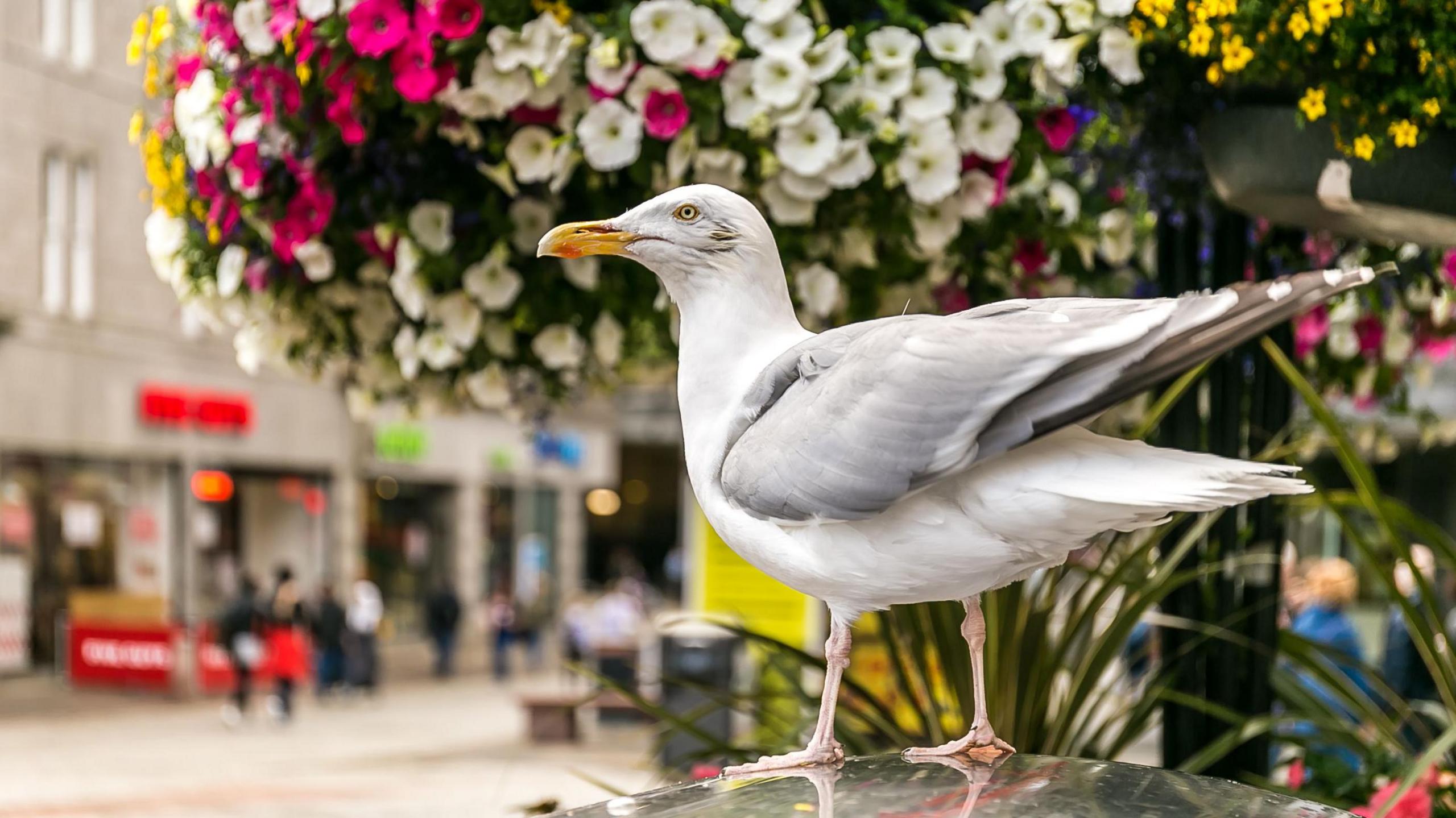
Gulls are common sight in urban areas in Scotland
- Published
A summit is being held in Inverness later to look at the impact of urban gulls on towns and cities in Scotland.
Businesses, pest controllers and scientific advisers will discuss bird droppings, dive bombing, bin raiding and other common complaints.
It comes after Highland Council set out a plan for problem gulls in Inverness, and Scottish Borders Council heard that birds in Eyemouth were "out of control".
Chaired by Scotland's agriculture minister Jim Fairlie, he will be joined by NatureScot and other conservation groups to consider these problems against a backdrop of declining seabird numbers.
The issue has been extremely controversial and led to the resignation of Scottish government minister Jamie Hepburn after he clashed with former Scottish Conservative leader Douglas Ross.
Where are gulls causing problems?
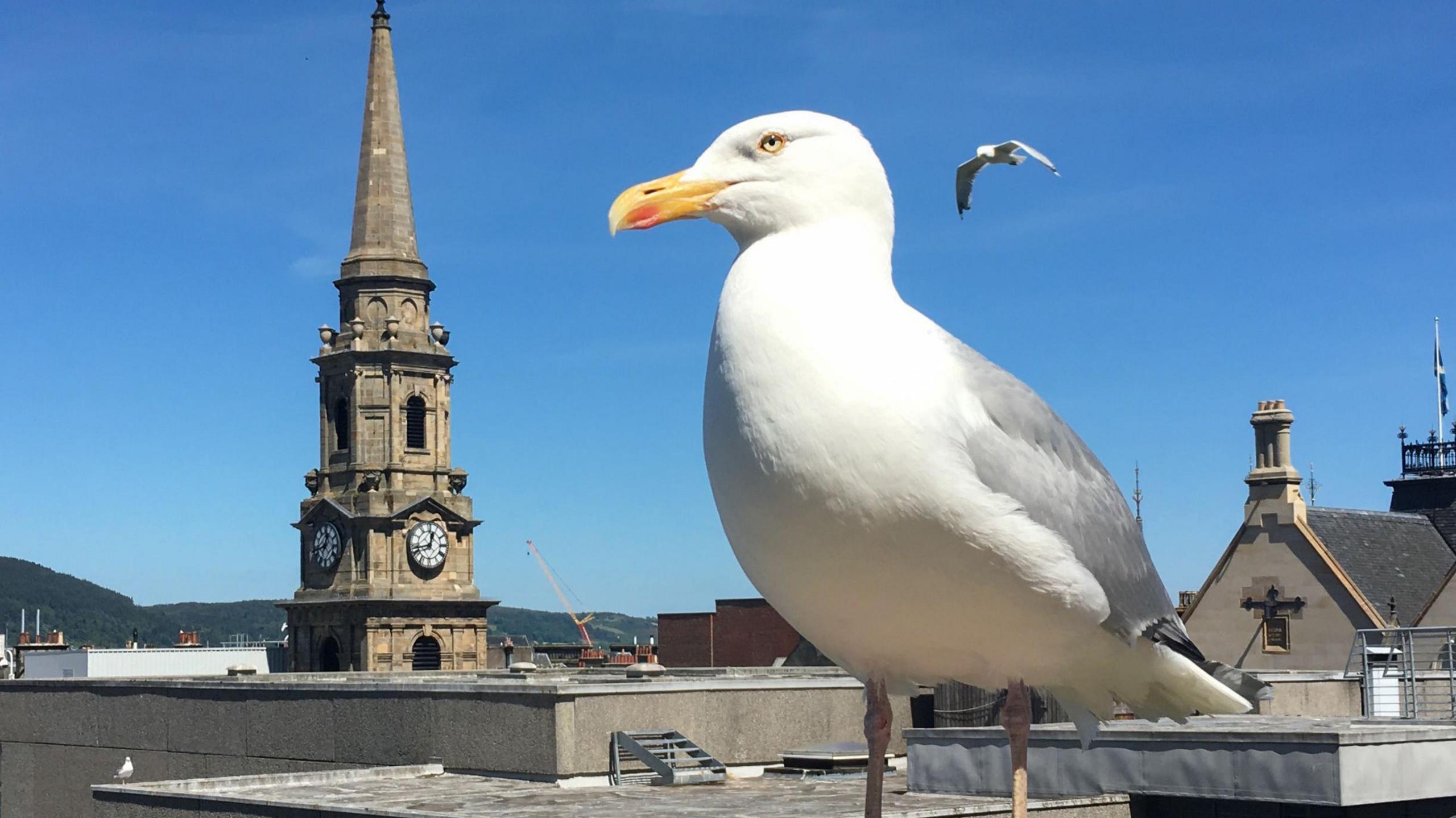
Highland Council rolled out plans for dealing with the birds in Inverness
Gull-related incidents have made news headlines in towns across Scotland.
Last summer The Sun reported that a hockey venue in Inverness had to close temporarily because of the level of mess left by the birds, external.
Highland Council's measures include using a trained falcon to scare away gulls, spikes and nets to discourage nesting, and ad campaigns to stop people feeding gulls.
Dumfries and Galloway Council has also said it was spending tens of thousands of pounds to combat the issue of "dive-bombing" birds scavenging food in its towns.
And Scottish Borders councillors was told seven children were attacked by herring gulls in the space of a month and left with gashes to their scalps.
In Eyemouth it was reported that gulls were "out of control" and in Aberdeen, there have even been problems with gallous gulls "shoplifting".
How many seagulls are there in Scotland?
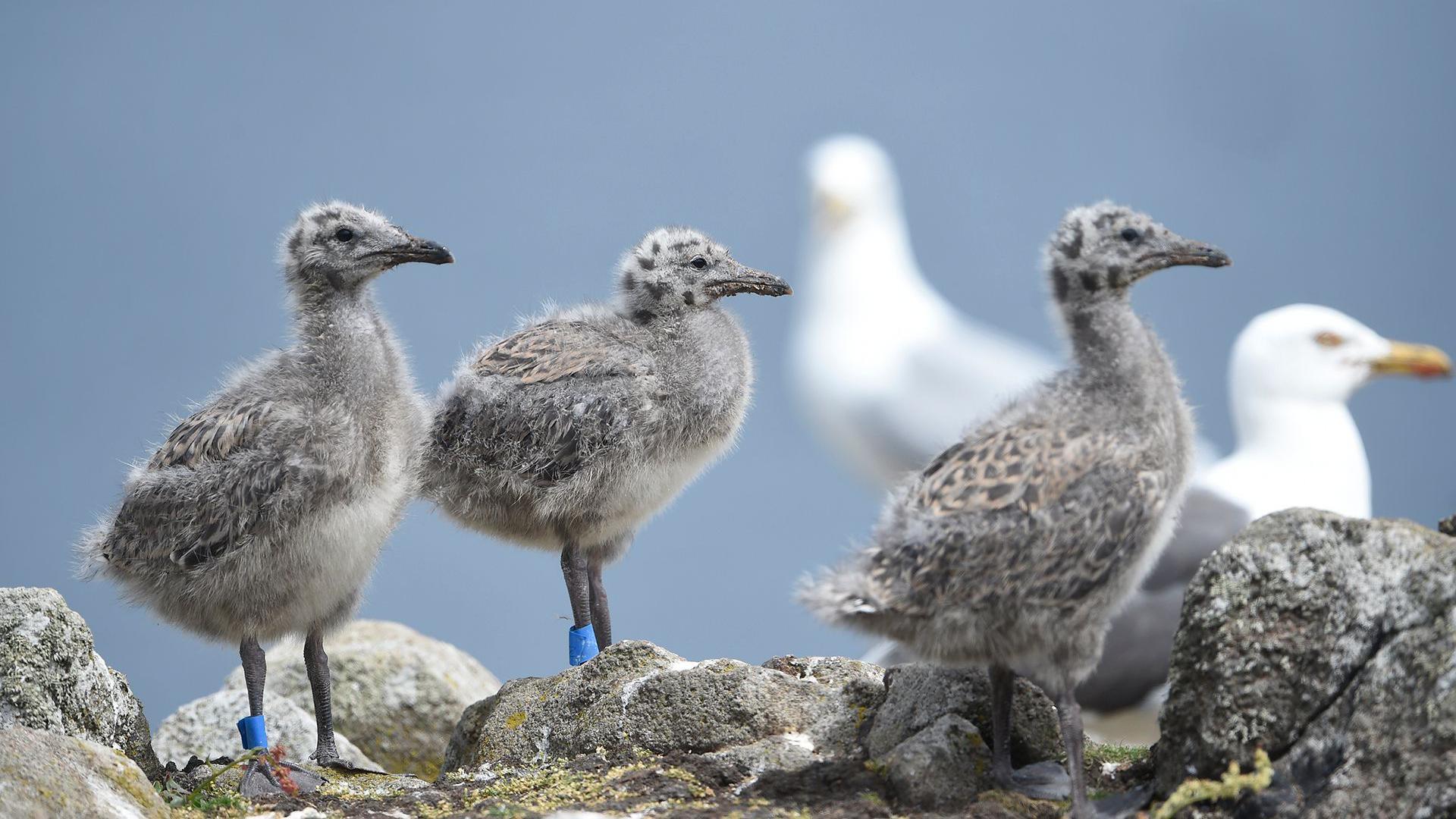
Lesser black-backed gull chicks, in their traditional coastal habitat
Commonly referred to as seagulls, there are several species of gull in Scotland.
The five that breed in urban areas are great black-backed, lesser black-backed, common, black-headed and the herring gull.
Herring gulls, which are often encountered in towns and cities, number about 740,000 birds in the UK, according to the RSPB, external.
Scotland has half of the British and Irish nesting population, but numbers have fallen by 44%, with the largest decline along the west coast.
The Scottish Seabird Centre, external says that Herring gulls are now on the UK red list of serious conservation concern - putting them at risk of extinction.
Gulls are naturally a coastal species, but have been drawn into towns due to plentiful places to build nests, a lack of predators and the opportunities to find food.
In their natural habitats - the coast and farmland - the birds eat carrion, seeds, fruits, young birds, eggs, small mammals, insects and fish.
There are other gull species in Scotland, which are more rare, and more than 50 species that breed around the world.
What are the rules for removing Gulls?
Watch: Aberdeen's 2016 crisp-stealing gull
All wild birds have long been protected by law, but gulls and other sea birds have seen a sharp fall in numbers.
The RSPB says the UK's gull population has declined by more than 60% since 1970, with overfishing and climate change among the suspected causes.
Bird flu has also claimed thousands of sea birds, including gulls.
In Scotland a special licence is needed to destroy the nests or eggs of gulls, relocate chicks or, as a last resort, carry out lethal control.
In February last year Scotland's nature agency NatureScot made the rules around controlling gulls stricter, external.
The guidance was tightened to make clear that licences could only be issued for clear public health and safety issues - where other alternatives are not effective.
These issues could include as gulls dive bombing vulnerable people, or droppings affecting food processing.
NatureScot says its aim for dealing with urban gull problems is prevention.
It advises measures such as removing nesting material before the breeding season, and nets, spikes and wires to discourage birds from nesting on roofs.
Jamie Hepburn and the seagull row
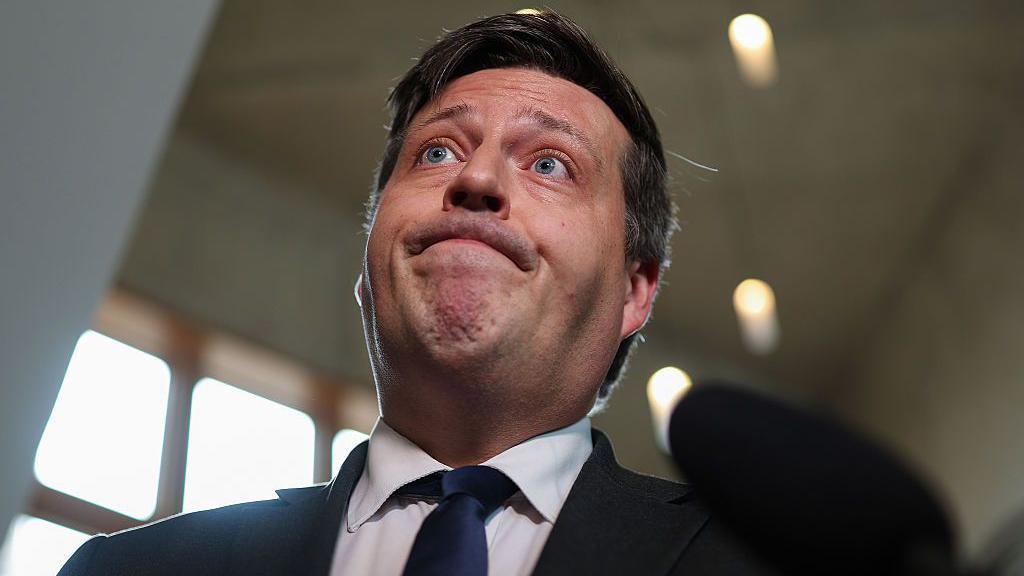
Jamie Hepburn said he had not acted in line with his "personal code"
One unexpected turn of events ahead of the seagull summit was the resignation of Scotland's parliamentary business minister Jamie Hepburn.
A row erupted in the Scottish Parliament with Scottish Conservative MSP Douglas Ross, over whether the government would postpone the summit or make a statement in the chamber.
But Hepburn and other SNP MSPs were annoyed that Ross chose to spend several minutes on seagulls, when they were were waiting for a key vote on justice reforms.
Ross accused Hepburn of grabbing him and swearing as they left the chamber and raised a complaint.
Hepburn admitted he used some "choice words" and offered his resignation for behaviour he said did not meet his "personal code of practice". He was replaced by Graeme Dey.
What are the politicians saying?
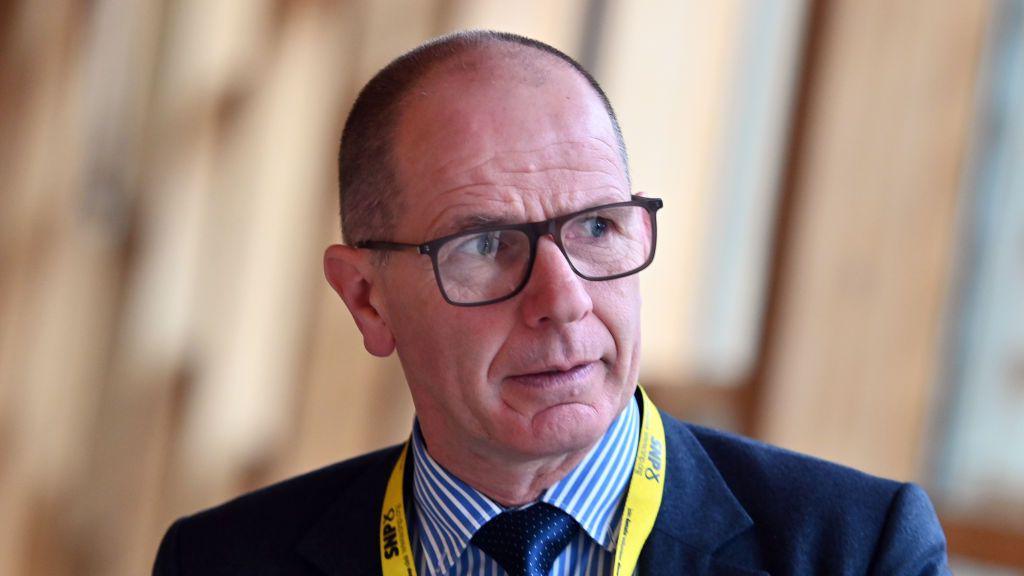
Agriculture minister Jim Fairlie has defended the role of the summit which he will chair
Douglas Ross has branded the seagull summit "a sham and a farce" because the public will be locked out.
He told the BBC Radio's Good Morning Scotland programme: "I've had constituents hospitalised - it is a serious issue.
"The growing problem of gulls in our community is getting worse and we need to do something about it."
Scotland's agriculture minister Jim Fairlie insisted the government was taking the issue seriously and accused Douglas Ross of "grandstanding".
He told Good Morning Scotland: "We need to work out why the gulls are finding our habitat more favourable than theirs.
"So, how do we cut down conflict (with people) and find a balance of allowing the gulls to live beside us while stopping the damage?"
- Published31 March 2024
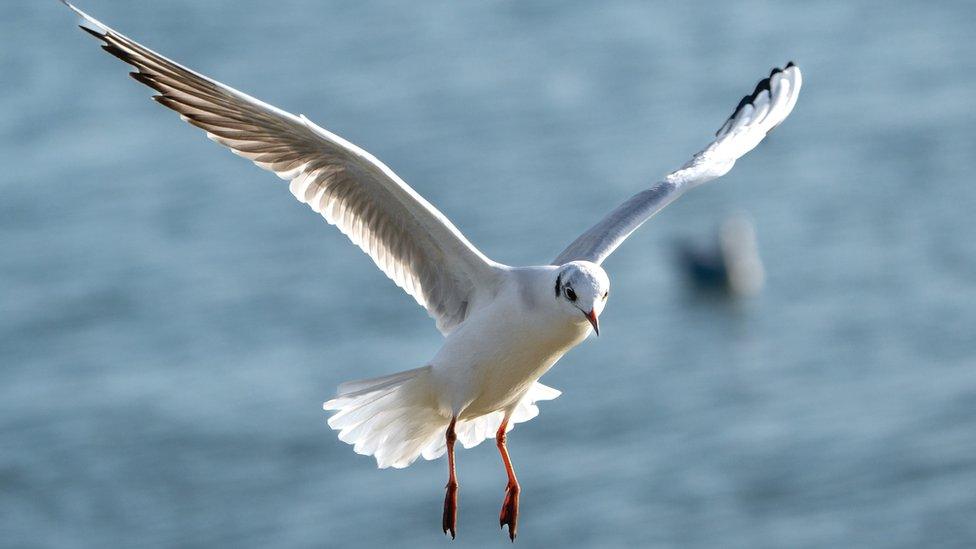
- Published27 August 2024
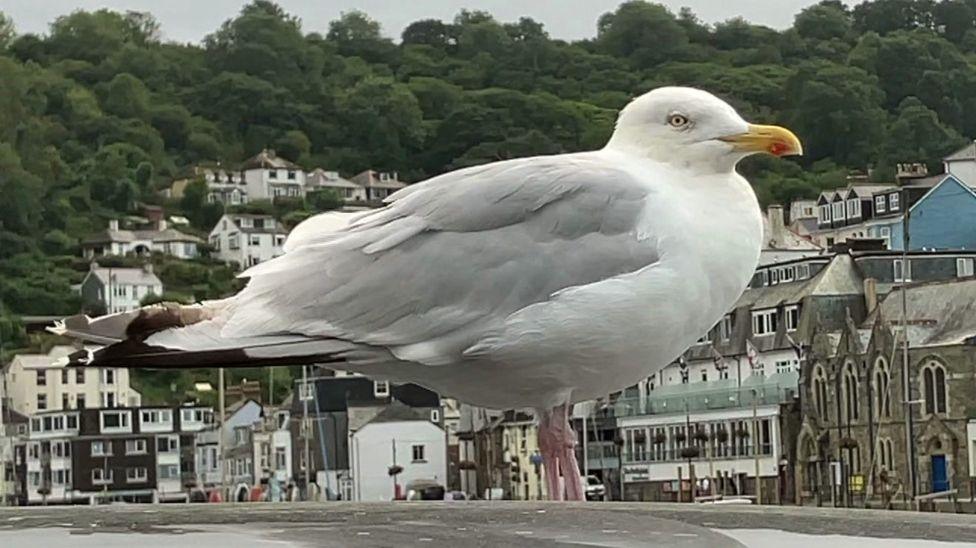
- Published15 August 2024
